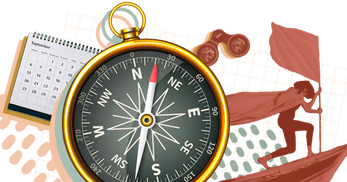ENTJ

ENTJ Strengths
Strong willed. One thing that is especially admirable about ENTJs is their near imperviousness to criticism. Once they have formed a position or made a decision, they don’t buckle under pressure. They are just that certain of the rightness of their beliefs and the deft logic that brought them there. To sway ENTJs, you must either outsmart them or prove them wrong. ENTJs don’t mind being criticized, don’t take things personally and are not afraid to hold the outside opinion.
Efficient. ENTJs are known for their sheer productivity, efficiency and focus, often being able to handle many tasks without dropping or defaulting on any of them. They have limitless energy for their work and they produce more than favorable results. ENTJs often obtain what they go after because they are not easily discouraged, even when their plans or positions don’t seem to be working or take longer than expected. They believe they cannot fail.
Strategic thinking. ENTJs are sharp thinkers and remarkable problem solvers. They tend to have great ideas and are able to examine the situation from every angle and strategically map out a plan in order to achieve their vision. Rather than being overwhelmed by problems, they are energized by them. These qualities combine with their strong conceptual skills to ensure that every project moves forward with smart, long-term solutions.
Charismatic leaders. ENTJs live in a world of possibilities and see challenges everywhere that they gladly attack. They are leaders in the best sense, using their energy and charisma to inspire and motivate others. People often choose ENTJs be their leaders, and this allows ENTJs to achieve ambitious plans they could never achieve on their own.
ENTJ Weaknesses
Blunt and dominant. Given their logical way of thinking, it's no surprise that ENTJs are expert at finding flaws and holes. But when combined with their characteristic bluntness and lack of regard for the feelings of others, it can make them appear critical, nitpicky and unrelenting. Not everyone will appreciate having their flaws so frequently picked out and put on display.
Intolerant. ENTJs hold others to their same impossible standards, believing everyone can and should work as hard as they do. They often lack patience for people who are naturally less direct or a bit slower. “It’s my way or the highway” can be an intimidating mantra for those on the sharp end of the ENTJ’s criticism.
Arrogant. ENTJs respect strategic thinking, quick wits and decisive action, and look down on those who don’t match up. While being sure of yourself can only be a good thing, it often translates to arrogance, especially in the eyes of those who have not put in as much effort and don’t have the same courage in their convictions.
Poor handling of emotions. Empathy is not one of the strengths of the ENTJ. This type tends to be impatient when others refuse or are unable to see things from their perspective, and it requires active attention from the ENTJ to recognize the value of others' opinions and to take their feelings into account. In a personal environment, ENTJs can behave imperiously and trample over others’ feelings, which made not win them any friends.
ENTJ Growth and Development
In order to reach their full potential, ENTJs should:
Get in touch with emotions—their own and others’. ENTJs can stand to intentionally work on raising their EQ a few points. Otherwise they come off as abrasive and unfeeling and their relationships fail to develop properly. ENTJs can make progress by working to consider their own feelings and those of other people, but it won’t come naturally.
Practice restraint. Yes, it is important to be right, but this isn’t the only concern. It is important to also consider the personal consequences. Truth and results are important, but ENTJs will do well to consider how their actions and decisions will affect the people around them or society at large.
Value people. Ideas, causes and convictions are important, but the ENTJ will be happier in the long run if he or she does not completely jettison personal relations and the feelings of others in the quest to be right or to hold to his or her convictions. And it is possible to enjoy the company and friendship of someone with whom one does not agree on all matters and who also doesn’t desire to argue about it.
Listen up. ENTJs must work on listening and not just for the purpose of arguing in return. ENTJs, using their combination of intuition and rapid processing, tend to finish sentences, interrupt, anticipate information and make assumptions. They will benefit by slowing down, listening, waiting for others to finish and trying to pay attention to the details—they might actually be important.
Relax! The pace of the ENTJ is rigorous and ENTJs often fail to see the need for leisure or rest. But their work schedule, high intensity and perfectionism can cause them to neglect their health and have negative consequences for them and their families. Thus, it is necessary to build leisure, fun, social interaction and rest into their lives without feeling guilty about the time they may be spending away from work. And they are likely to find that their work is better for it in the long run.



